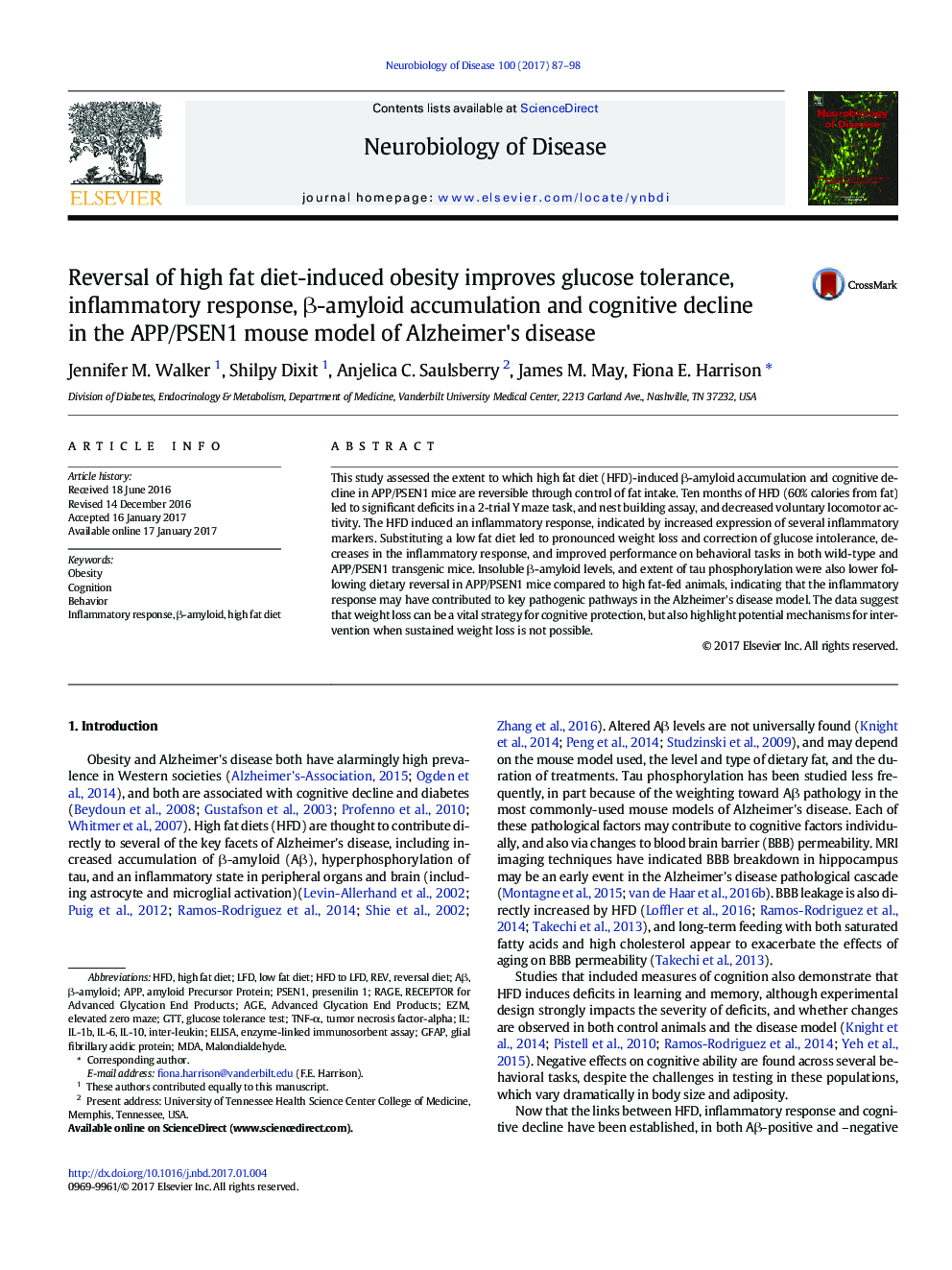| Article ID | Journal | Published Year | Pages | File Type |
|---|---|---|---|---|
| 5630668 | Neurobiology of Disease | 2017 | 12 Pages |
â¢High fat diet-induced cognitive deficits were reversible by low fat diet treatment.â¢High fat diet-induced inflammatory response was reversible by low fat diet treatment.â¢High fat diet-induced acceleration of β-amyloid accumulation was partially reversible.â¢APP/PSEN1 mice on high fat diet showed greater glucose intolerance than wild-type mice.
This study assessed the extent to which high fat diet (HFD)-induced β-amyloid accumulation and cognitive decline in APP/PSEN1 mice are reversible through control of fat intake. Ten months of HFD (60% calories from fat) led to significant deficits in a 2-trial Y maze task, and nest building assay, and decreased voluntary locomotor activity. The HFD induced an inflammatory response, indicated by increased expression of several inflammatory markers. Substituting a low fat diet led to pronounced weight loss and correction of glucose intolerance, decreases in the inflammatory response, and improved performance on behavioral tasks in both wild-type and APP/PSEN1 transgenic mice. Insoluble β-amyloid levels, and extent of tau phosphorylation were also lower following dietary reversal in APP/PSEN1 mice compared to high fat-fed animals, indicating that the inflammatory response may have contributed to key pathogenic pathways in the Alzheimer's disease model. The data suggest that weight loss can be a vital strategy for cognitive protection, but also highlight potential mechanisms for intervention when sustained weight loss is not possible.
Graphical abstractDownload high-res image (213KB)Download full-size image
